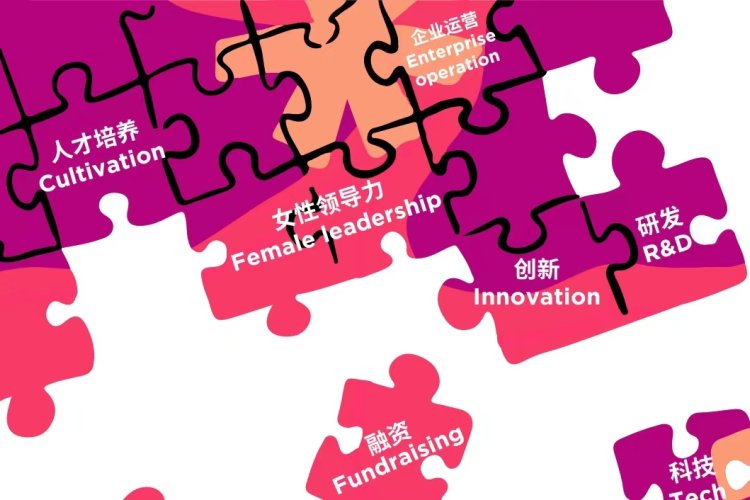A Curated Guide to Beijing’s Startup Scene, pt. 1
This is the first of two parts on local resources for eager entrepreneurs in Beijing.
Budding entrepreneur in Beijing? Sourcing startups but not sure where to start? Just trying to get a sense of the innovation landscape in one of the most important tech hubs in China?
Having answered these questions myself here on the ground in the last few months, I’ve written down what I’ve learned where it may be helpful to others, whether early-stage entrepreneurs or their supporters.
Introduction
Beijing is big. As a market, Beijing has a population of 22 million people, larger than a small country and rivaling in size some middling nations. Politically, it is the capital of an ascendant world power. In technology, Beijing is a hub for research and technical development, bolstered by top universities that attract, train, and feed young talent into various industrial clusters. For example, in artificial intelligence (AI) – where Chinese investment has eclipsed that in the US – Beijing is a leading AI cluster, with new labs continuing to launch, including Google’s and Kai Fu Lee’s latest.
For startups, Beijing is arguably the biggest entrepreneurial ecosystem in China. 66 of China’s 151 unicorns as of March 2018 hail from Beijing, including such ventures as Uber-vanquisher Didi, soon-to-mega-IPO Xiaomi, and Musical.ly-acquirer Bytedance. Beijing accounted for 35 percent of China’s venture funding in 2017, more than double that of the next Chinese city.
As a result, there is a lot going on in Beijing. It can be difficult to separate the signal from the noise. This article attempts to serve as a guide through this “noisy” innovation landscape.
Below is a list of organizations helping early-stage entrepreneurs in Beijing. “Early-stage” here indicates startups that have yet to raise capital from institutional investors (versus family & friends). Brief descriptions include links for readers to find additional detail if interested.
Not all entrepreneurs have the same needs. Business challenges will vary by industry, founder, or even time of day. For structure, this article is organized in three rough “stages” in a common – if oversimplified – journey of an entrepreneur:
- Pre-idea
- Pre-incorporation
- Pre-funding
This list does NOT include:
- While coworking spaces can appeal to certain startups, I omit most as they do not provide resources specific to early-stage entrepreneurs.
- Later-stage fundraising is another topic beyond the scope of this article so I do not attempt to list out the myriad investors in Beijing.
- Old actors disappear and new actors appear constantly. No list can exhaustively capture all actors.
What follows is an imperfect – but still helpful – snapshot of the Beijing startup scene in 2018.
Stage 1: Pre-idea
The earliest entrepreneurs have yet to form a startup idea, in which case the organizations listed below are helpful for general exploration and learning:
Media
Don’t know the latest trends in the Chinese startup space? Start here.
TechNode Media has staff across China, including Beijing, reporting in both English and Chinese on technology, startups, and venture capital across China. TechNode Group, headquartered in Shanghai, is the exclusive Chinese partner of TechCrunch and other business units offer events, innovation services, and investment data.
36氪 36 Kr
36Kr Group began as a tech media company but now also runs a growing network of coworking spaces and an online investment data platform. They provide nonstop Chinese coverage of domestic tech trends.
创业邦 Cyzone
Since 2007, Cyzone has endeavored to be a support platform for entrepreneurs across China. They publish the startup magazine《创业邦》 and are the sole partner of the start-up publication Entrepreneur Magazine in China. They have several other products for entrepreneurs and investors, some mentioned below.
Events
Per Steve Blank, “get out of the building.” Events provide an easy way to do so and meet potential co-founders, supporters, and/or talent. A few event organizers:
Startup Salad seeks to “empower changemakers” through speaker events, hackathons, and competitions. They have a large domestic footprint that includes approximately 50 different Chinese cities. Their signature offering is a 52-hour hackathon. Past event sponsors include Tencent, P&G, NodeCapital, and others.
AngelHack is a global organization that specializes in running hackathons. They have staff and events in Beijing, as well as all over the world. Winning teams from their hackathons around the world are invited to an annual “HACKcelerator” program that further develops prototypes into actual startups.
Startup Grind is a global community-building organization with chapters in cities around the globe. The Beijing chapter is one of the most active in the world. They primarily organize speaker events to convene startups, investors, and other community members.
Beijing Entrepreneur Community Dinner
This informal meetup has been running since 2012. It is a weekly dinner gathering open to anyone and everyone interested in entrepreneurship.
Other
Neither media nor events, but still of potential value:
Silicon Dragon is the brand under which Rebecca Fannin reports on tech innovations and investment in frontier markets, including China. Of relevance here is their annual Beijing event which regularly gathers top VC and entrepreneur speakers.
Influence Matters is a cross-border marketing firm specializing in startups and medium-sized tech companies. They produce a digest of tech-related events in Beijing and Shanghai, sent weekly via WeChat, which is helpful for knowing what events are coming up.
Stage 2: Pre-incorporation (Post-idea)
Once a core idea is in place, founders eventually need to incorporate a business entity, not to mention recruit teams and refine their business plan. Handy resources:
Competitions
Business plan competitions can be useful for working with potential teammates, soliciting outside feedback, and potentially winning cash prizes. There’s always another pitch contest launching and too many to list here but the Stage 1 resources should alert you to the latest competitions coming your way.
Courses
Some argue that no class can prepare you for running a startup. Others obviously disagree, as they run exactly such classes:
联想之星创业CEO特训班 Legend Star CEO Training
Legend Star is an early-stage investor with close ties to Lenovo and the Chinese Academy of Sciences. Besides investing, Legend Star runs a training for founders every year. For 5 weekends spread over the course of 12 months, a class of ~50 founders meet in Beijing to learn from experienced entrepreneurs various aspects of running a successful enterprise. Since 2008, more than 700 entrepreneurs have graduated from the CEO Training, including the CEO of Zhihu, China's answer to Quora. This training is free for accepted applicants.
Since 2014, Stanford Graduate School of Business has been running a Beijing-based version of its Ignite certificate program, targeting young professionals without management experience. Its curriculum focuses on building successful startups (e.g. business models, marketing, pricing, etc.) and has been adapted to the Chinese market. 2018 tuition is Rmb 78,000.
Y Combinator (YC) is a startup accelerator founded in 2005 which has invested in more than 1,500 startups (e.g. Dropbox, AirBnB) from its base in Silicon Valley. In addition, YC runs a program called Startup School to teach anyone how to start a business. YC is entering the Chinese market and recently conducted a free one-day live Startup School in Beijing for 300 accepted applicants. Aside, YC intends to hold regular meetups in China.
Incubators
Incubators provide space and services to help early teams get their ventures off the ground, generally taking some combination of fees, equity, or sponsorships. If the right fit, incubators can be a great help to early teams.
Tsinghua University launched its incubator in 2013 to advance entrepreneurial education through venture creation. Since then, they’ve incubated over 1,200 teams, of whom over 500 have incorporated as formal businesses. Support provided includes free space; access to alumni, corporate partners, and investors; and participation in various demo day events. x-lab is sector-agnostic and takes neither fees nor equity. Note: at least 1 core member must be a Tsinghua student or alumnus for a team to be eligible for x-lab.
北大创业孵化器 PKU Incubator
Peking University (PKU) has operated an incubator in Zhongguancun since 2002, with over 100 teams graduated. And since 2015, their PKU Incubation Camp has incubated six batches of around 30 teams each, including notable graduate bike-sharing giant Ofo. Each batch receives six months of office space; curated mentoring from a pool of over 150 experts; and other third-party services. While PKU affiliation is advantageous, the program is not restricted to alumni. Program fees vary by topic area.
Innoway is a state-owned enterprise (SOE) which manages a city block of startup supporter organizations in Zhongguancun, one of the most famous tech clusters in China. Among many other activities, it has a Global Incubator which runs a China Soft-Landing Program designed to facilitate entry of overseas startups into China. They provide companies in their incubator coworking space, curated mentoring, and third-party business services for a cash fee or equity stake (3-10 percent equity in Chinese entity for up to RMB 500,000).
TechTemple is a coworking community that caters specifically to tech startups. They have incubated over 400 ventures since first opening in 2013 in Beijing, including such startups as Musical.ly and 36Kr. Members receive workspace, business model consulting, investment guidance, and other support in growing their business. TechTemple is a frequent host of many Beijing startup events, bringing resources from across the ecosystem to benefit its members. Fees start at RMB 2,000 per month, depending on location and space required.
“Coffee Shop” Incubators
In a phenomenon unique to China, some coffee shops in Zhongguancun evolved into incubators during the government “mass entrepreneurship” or 双创 push in 2014. They expanded to provide desks, business services, community events, and even investment. Although some I spoke with no longer invest (3W, Binggo咖啡), I would be remiss to omit this group of organizations (also 车库咖啡 Garage Cafe, IC咖啡) as they provide economic places assemble a business.
In this first article, I’ve provided just some of the many organizations helping Beijing founders establish their startups, getting through Stages 1 & 2. There are even more organizations helping those startups raise their first institutional investment. I will describe these Stage 3 actors in a subsequent article.
Image courtesy of TechNode








